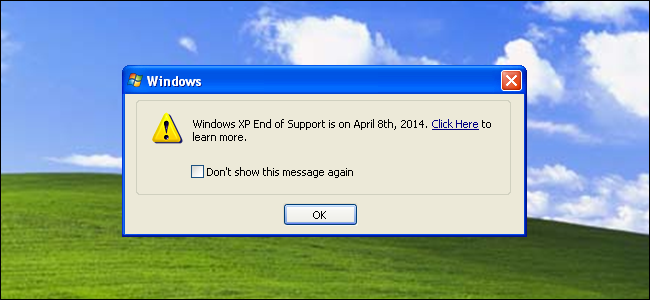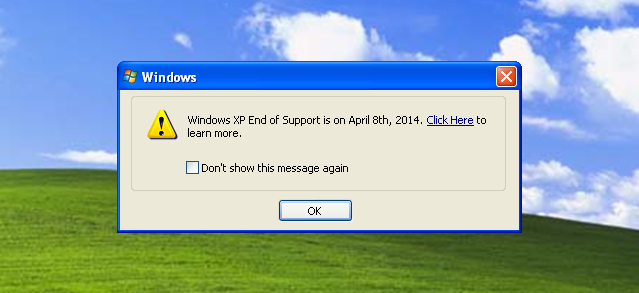At the end of 2011 we were advised that Windows XP’s days were numbered in terms of official support from Microsoft. Yesterday, April 8th, was Doomsday, and after 13 years the operating system, along with Office 2003, will no longer receive updates or security patches. Although the Microsoft Security Essentials label will continue to be updated for a while, the first problems are already starting to come to light as we attempt to detach ourselves from a software used by bureaucracies and public services around the world.
The big issue: public services
Beyond users’ attachment to the system or the relative difficulty of making the jump to a new operating system, the most serious problems could arise from XP’s place as the most-used software in the bureaucracies of a huge number of governments, not to mention its use in systems of vital importance such as ATMs. In fact, fully 95% of the world ATMs use Windows XP, which could cause a lot of problems starting now.
At the end of 2013, the IT security company Symantec pointed out an important security breach in ATMs in Mexico, where using a malware called Backdoor.Ploutus made it possible to inject the system with malicious software and withdraw money. Although the Mexican Banking Association has confirmed that the situation is under control, the uncertain future of Windows XP might complicate things if someone doesn’t devise a thorough IT system revamp soon.

Governments ask for an extension
If it’s already expensive for an individual to make the switch to an alternative, there’s no imagining what’s involved in such a maneuver for all the public administrations that are still on XP. Thus a few governments have already made agreements with Microsoft to extend the support period. The United Kingdom has secured a support extension for critical updates to Windows XP and Office 2003 for another year. (It only cost them £5 million.) Other countries like The Netherlands have done the same, with similar conditions.
The most sensible thing to do in these cases would be to migrate their infrastructure to Linux, for both the obvious security advantages and the considerable savings it would entail. Look, for example, at the Munich city council, which saved some €11 million after migrating the more than 15,000 computers in its public administration to LiMux, its own free distribution.
And then there is the case of Spain, which according to the site Hispalinux aims to migrate its infrastructure directly from Windows XP to Windows 8.1, with the enormous cost of hardware upgrades and license purchases that entails. But the genuinely worrying thing about all this is not the cost, but rather the fact that it will be done without even going through the public tender and prior licensing processes before the State General Administration to choose the most suitable contractors. Given the country’s precarious economic situation, this move doesn’t seem like a very smart one.
What alternatives will ordinary users have?
Luckily, there are several. We’ve already talked on this blog about the diverse update options, whether with more modern versions of Windows or making the jump to Linux through one of the many distributions that exist for computers of every sort.
In the case of IT software the change is much less traumatic. You can probably leave Office 2003 behind with alternatives the likes of OpenOffice or LibreOffice with no hitches whatsoever.










